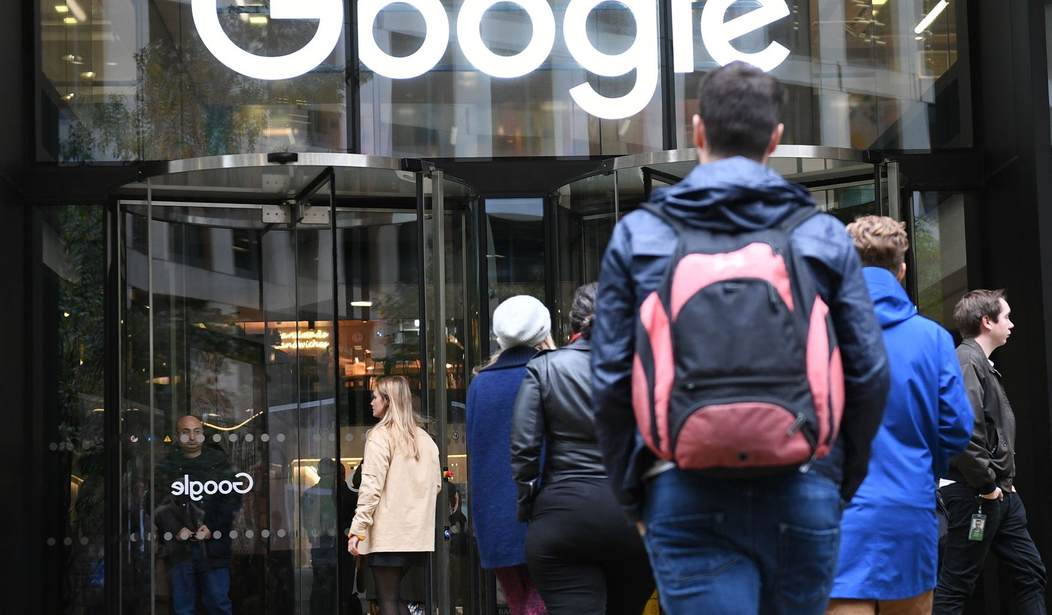Few have been immune from the impact of COVID-19, but the challenges have been particularly severe for the nearly 32 million U.S. small businesses forced to adjust to ever-changing government restrictions, the acceleration to digital, and now labor and supply chain shortages that may impact their recovery. Entrepreneurial grit and ingenuity in the face of such obstacles have been nothing short of inspiring. Yet, as we celebrate the resiliency of small businesses during this National Small Business Month, they face a new threat: disruptive government regulation of the very tools that have helped them transform and survive.
Key lawmakers on both sides of the aisle have concluded that “Big Tech” is a big problem for our country. Democrats in Congress and the administration blame so-called “Big Tech” for diminishing competition. SomeRepublicans believe the same and argue these companies are limiting their voices. The Left and Right want to punish and overregulate America’s tech leaders, but they’re overlooking how their actions will actually impact consumers, including small businesses. Rather than harm consumers and competition, tech platforms and tools are improving the consumer experience and helping small businesses innovate, survive, and compete.
Over the course of the pandemic, small businesses have adapted to ever-changing restrictions and demand. At the onset of COVID-19, many were forced to shutter. Those that survived got creative and modified their operations. Many brick-and-mortar retail stores didn’t disappear—they pivoted more fully to e-commerce, which helped to stem the loss of in-store sales. Local restaurants adopted digital tools and apps or turned to delivery platforms. Small business owners more fully embraced social media to engage with customers and used tech platforms to better serve them, garner feedback, and collect positive reviews.
Indeed, over the past decade, local businesses have been slowly integrating their physical business with technology and online platforms. The pandemic accelerated the shift, bringing local storefronts and other businesses further into the digital world. For example, when COVID-19 closed in-house service,42% of restaurants took advantage of external delivery services for the first time.
Recommended
Counter to political rhetoric, Big Tech has enabled innovative startups and small business growth. It was assumed, for example, that Amazon’s entry into the food business through its purchase of Whole Foods would be a disaster for competition. Instead, it transformed Instacart—at the time a tiny startup—into a huge success story that skyrocketed even further during the pandemic.
Unfortunately, over the course of its investigatory hearings, Congress has only asked for (and received) a biased and unbalanced assessment of the impact of America’s technology leaders. Companies like Google, Yelp, Facebook, and Amazon (and many other platforms) actually provide small businesses with the tools they need to reach customers, market, and deliver their products—and grow. Look no further than the16 million American businesses that received phone calls, bookings, and reviews through Google in 2019, driving nearly 2 billion interactions between businesses and consumers per month.
At a time when in-person interactions are harder to come by, this is more critical than ever. In fact,half of shoppers found a new business on a digital platform. Technology platforms have lifted local businesses into a stronger position, allowing them to transform their operations and business models, and to ultimately keep the lights on, which means needed job growth. For example, small and medium sized businesses that sell through Amazon have created nearly 1.1 million new jobs.
Accessible and affordable digital tools allow small businesses to widen the scope of their operations and connect with a larger consumer base. The affordability and accessibility of digital tools like Google’s and Facebook’s online advertising allow small businesses on any budget to virtually connect with customers.
But this progress could be on the verge of collapse due to the outdated view of markets by various members of Congress.
Human connections and commerce will continue to be built online. Hyper-regulating tech companies would restrict businesses with limited funds from competing with larger firms. The purpose of antitrust regulation is to promote competition. But radical actions being considered by Congress would tilt the scales to give fully financed corporations greater power and undermine entrepreneurship and startups that are the future competitors of big technology companies.
This National Small Business Month 2021, we recognize America’s small businesses for their resiliency and innovative spirit. Let’s not crush that by needlessly disrupting the tech platforms and innovative ecosystem that have allowed our economy and its small businesses to weather the pandemic better than most across the world.
Karen Kerrigan is president & CEO of the Small Business & Entrepreneurship Council.

























Join the conversation as a VIP Member